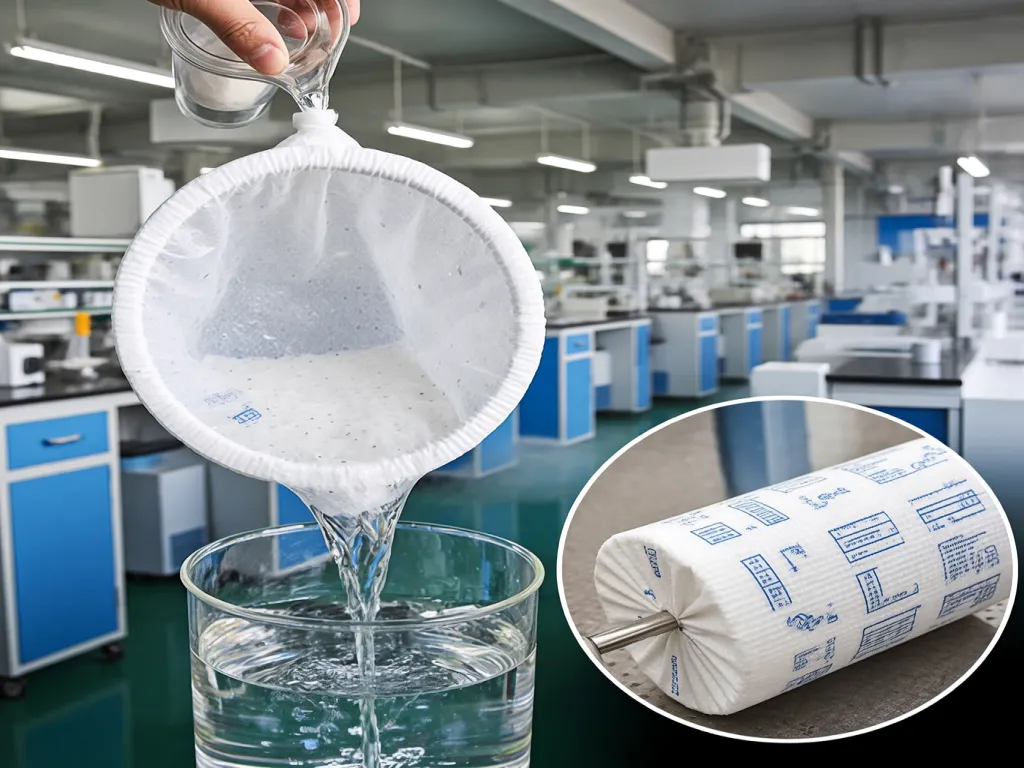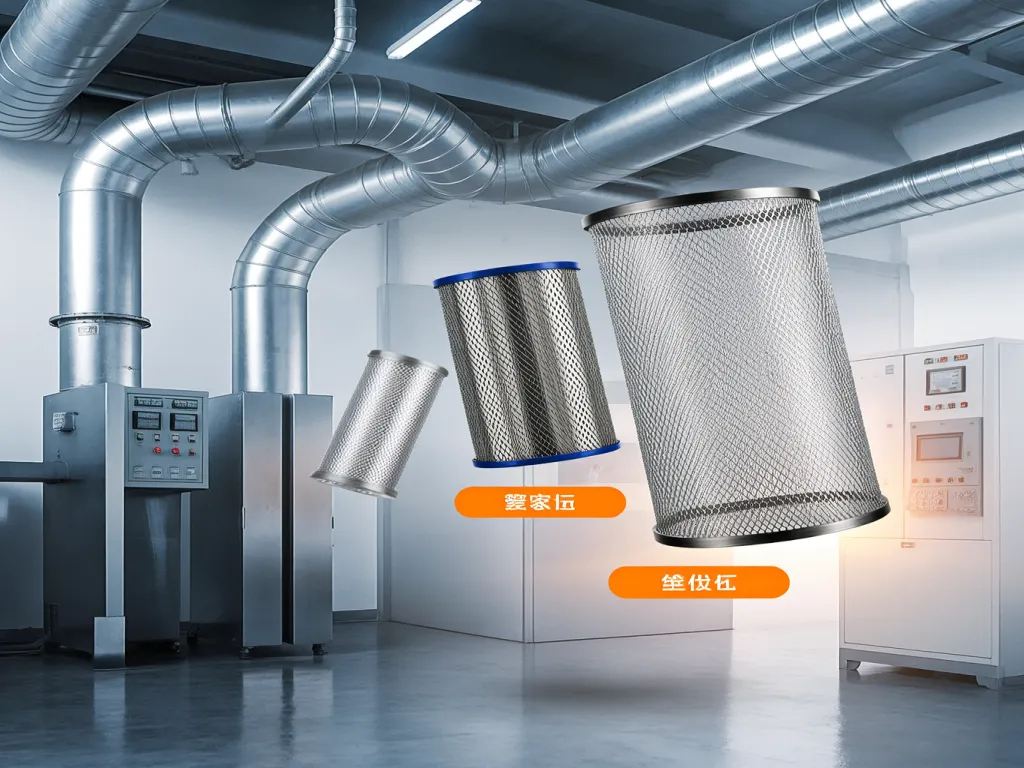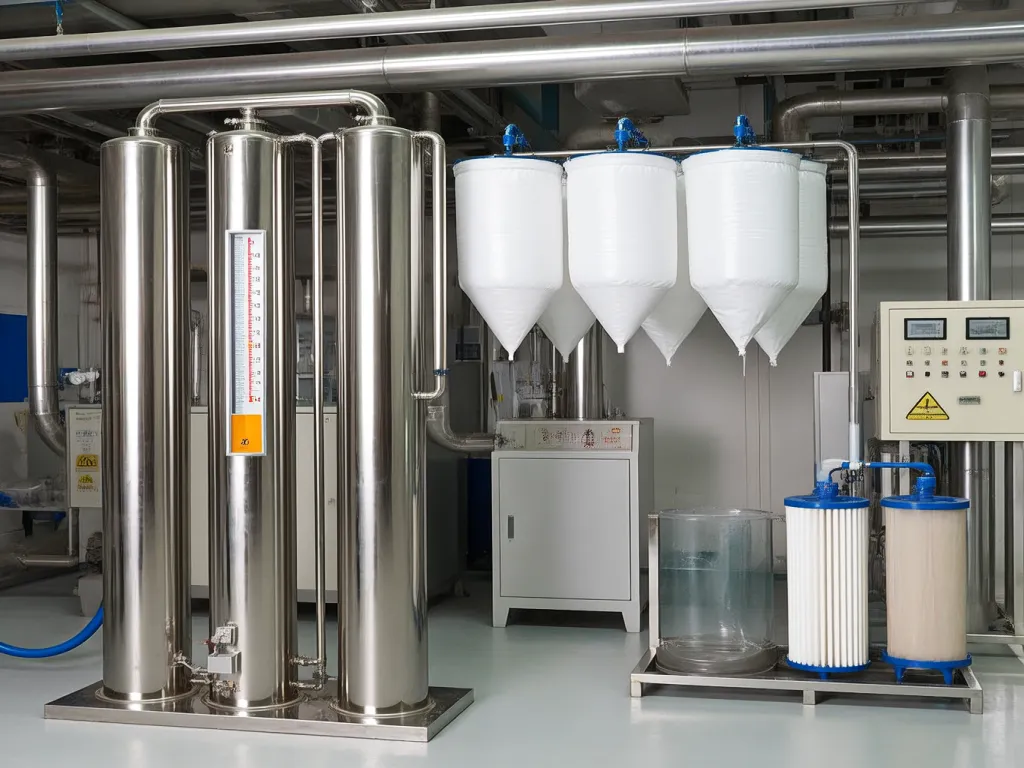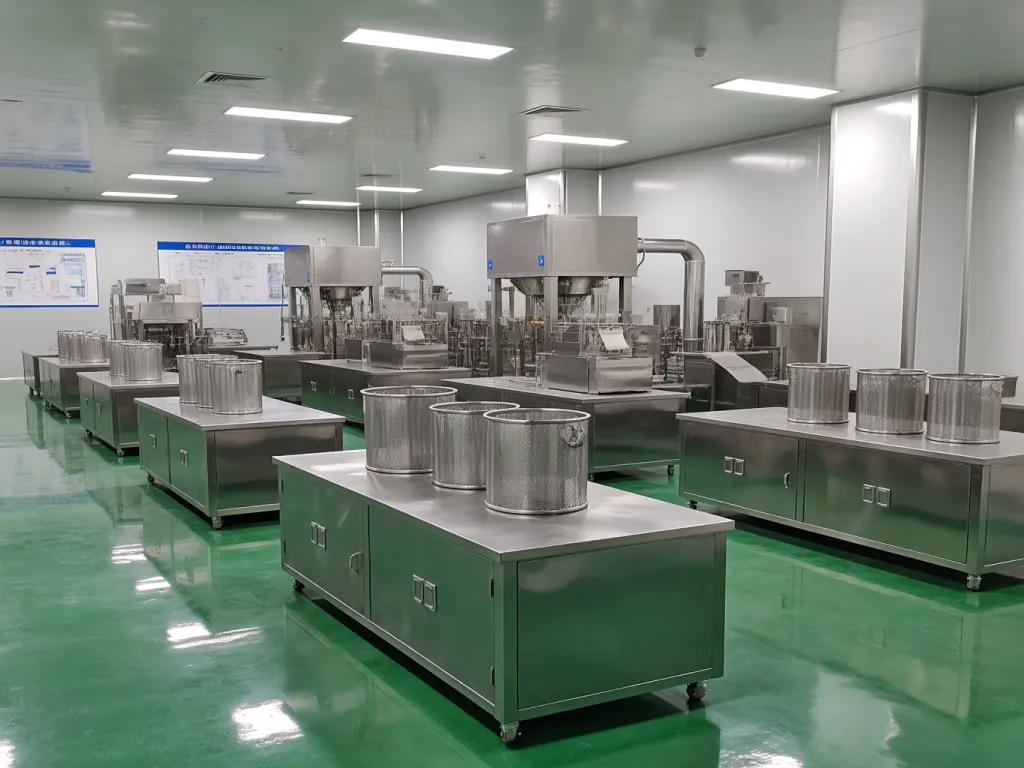Mesh Filter Bags: Material Matters Most
Ever wondered why some industrial processes run smoother than others? The secret often lies in a tiny yet mighty component: mesh filter bags. These unsung heroes of filtration come in various materials, each with unique strengths. From nylon’s lightweight durability to stainless steel’s industrial-grade strength, the material you choose can make or break your system’s efficiency. But how do you know which mesh filter bag material truly delivers the best bang for your buck? Let’s dive deep into the world of filtration materials and uncover what really matters when selecting mesh filter bags for your operations.

Nylon Material: Lightweight and Durable – Which Scenarios Are They Best Suited For? Analyzing Filtration Efficiency, Chemical Stability, and Cost-Effectiveness
When it comes to mesh filter bags, nylon stands out as a popular choice among industrial professionals. Why, you might ask? Well, nylon mesh filter bags offer a unique blend of lightweight construction, durability, and excellent filtration performance. But where exactly do they shine the brightest? Let’s dive into the scenarios where nylon mesh filter bags truly excel and analyze their filtration efficiency, chemical stability, and cost-effectiveness.
First off, nylon’s lightweight nature makes it a go-to option for applications where minimizing weight is crucial. Think about industries like food processing or pharmaceuticals, where every ounce counts in terms of handling and transportation. Nylon mesh filter bags are easy to maneuver, reducing the risk of operator fatigue and increasing overall efficiency. For industries requiring high-efficiency filtration, our high-efficiency polyester dust collector filter bags also offer a compelling alternative, though nylon’s lightweight advantage remains unmatched in specific scenarios.
Now, let’s talk about filtration efficiency. Nylon fibers are known for their uniform pore size distribution, which ensures consistent filtration across the entire surface area of the bag. This means fewer clogs and longer service life compared to some other materials. Whether you’re dealing with fine particulates or larger debris, nylon mesh filter bags can handle the job with ease, providing reliable and efficient filtration.
But what about chemical stability? Nylon is highly resistant to a wide range of chemicals, including acids, alkalis, and organic solvents. This makes it an ideal choice for industries where the filter bag may come into contact with harsh substances. For instance, in the chemical processing industry, nylon mesh filter bags can withstand the corrosive nature of many chemicals without degrading or losing their filtration properties.
Cost-effectiveness is another area where nylon mesh filter bags shine. While they may not be the cheapest option on the market, their durability and long service life make them a cost-effective choice in the long run. You’ll spend less on replacements and maintenance, freeing up budget for other critical areas of your operation. Plus, with nylon’s resistance to wear and tear, you can expect fewer unexpected downtimes, further enhancing your bottom line.
So, where can you use nylon mesh filter bags? The possibilities are endless! From water treatment plants to automotive manufacturing, nylon’s versatility makes it suitable for a wide range of industries. Whether you’re filtering out impurities from drinking water or removing contaminants from manufacturing processes, nylon mesh filter bags have got you covered.

Filtration Efficiency in Detail
Nylon’s filtration efficiency is not just about its pore size distribution. The material’s inherent properties, such as its smooth surface and low friction coefficient, also contribute to its excellent performance. These characteristics reduce the likelihood of particles adhering to the filter bag, ensuring a cleaner and more efficient filtration process. Additionally, nylon’s ability to maintain its structural integrity under pressure means it can handle high-flow applications without compromising on filtration quality. For applications demanding pocket-style filtration, consider exploring our polyester pocket filter bags, which complement nylon’s versatility in diverse industrial settings.
Chemical Stability: A Closer Look
When we talk about chemical stability, it’s not just about resistance to acids and alkalis. Nylon also exhibits excellent resistance to oxidation and hydrolysis, which are common issues in many industrial environments. This means that even in the presence of moisture or oxygen, nylon mesh filter bags will maintain their performance and longevity. For industries like textiles or dyeing, where chemicals are a constant presence, nylon’s chemical stability is a game-changer.
Cost-Effectiveness: Beyond the Initial Price
While the initial cost of nylon mesh filter bags may be higher than some alternatives, it’s essential to consider the total cost of ownership. Nylon’s durability means fewer replacements, reducing the frequency of purchases. Its resistance to chemicals and wear also means less maintenance and downtime, which can be costly in terms of both time and money. When you factor in these long-term savings, nylon mesh filter bags often prove to be the more cost-effective choice.

Polyester Material: Temperature and Corrosion Resistant, the Top Choice for the Chemical Industry? Exploring the Performance of Polyester Mesh Filter Bags Under Extreme Conditions and Maintenance Costs
When it comes to industrial filtration, the choice of material for mesh filter bags can make or break your system’s efficiency and longevity. Among the various options available, polyester stands out as a favorite in the chemical industry, and for good reason. But why exactly is polyester the go-to material for handling extreme conditions? Let’s dive in and explore the durability, performance, and cost-effectiveness of polyester mesh filter bags. Polyester, known for its exceptional temperature resistance, can withstand a wide range of thermal conditions without compromising its structural integrity. This makes it ideal for applications where the filtration process involves high temperatures, such as in chemical manufacturing or metal processing. Unlike some other materials that may become brittle or lose their shape under heat, polyester maintains its flexibility and strength, ensuring consistent filtration performance even in the hottest environments. But temperature resistance is just one part of the equation. Polyester also shines when it comes to chemical stability. In the chemical industry, where filters are often exposed to corrosive substances, polyester’s resistance to acids, alkalis, and solvents is a game-changer. This means that polyester mesh filter bags can last longer in harsh chemical environments, reducing the need for frequent replacements and lowering overall maintenance costs. For industries relying on polyester dust collector filter bags, this longevity is particularly beneficial. Now, you might be wondering, ‘What about the cost?’ While polyester mesh filter bags may have a slightly higher upfront cost compared to some other materials, their longevity and performance in extreme conditions make them a cost-effective choice in the long run. Think about it this way: would you rather invest in a filter that needs to be replaced every few months or one that can withstand the test of time and harsh conditions for years? The answer seems pretty clear, doesn’t it? But don’t just take my word for it. Let’s look at some real-world examples. In a chemical plant that processes corrosive acids, polyester mesh filter bags have been used for over two years without any significant degradation in performance. Compare that to nylon or other materials that might only last a few months in the same environment, and the cost savings become evident. Moreover, the ease of maintenance with polyester mesh filter bags is another plus. Their smooth surface resists clogging, reducing the frequency of cleanings and the associated downtime. And when it does come time for maintenance, polyester’s durability means that it can withstand the rigors of cleaning processes without wearing out quickly. So, if you’re in the chemical industry or any other sector that demands filtration under extreme conditions, polyester mesh filter bags are definitely worth considering. Not only do they offer superior temperature and chemical resistance, but they also provide long-term cost savings and ease of maintenance. It’s a win-win situation for your filtration needs.
Temperature Resistance: Polyester’s Secret Weapon
One of the standout features of polyester mesh filter bags is their ability to withstand high temperatures. This is crucial in industries where the filtration process involves heat, such as in the production of plastics or during metal smelting. Polyester’s thermal stability ensures that the filter maintains its shape and filtration efficiency even at elevated temperatures, preventing breakdowns and ensuring continuous operation.
Chemical Stability: Polyester’s Shield Against Corrosion
In the chemical industry, exposure to corrosive substances is a daily reality. Polyester’s resistance to acids, alkalis, and solvents makes it an ideal choice for filtration in these environments. Unlike some other materials that may react with chemicals and degrade over time, polyester remains stable, ensuring long-lasting performance and reducing the need for frequent replacements. For those seeking reliable polyester filter bag suppliers, this stability is a key consideration.
Cost-Effectiveness: Long-Term Savings with Polyester
While the initial cost of polyester mesh filter bags may be slightly higher than some alternatives, their durability and performance in extreme conditions make them a cost-effective choice over time. The reduced need for replacements, lower maintenance costs, and minimized downtime all contribute to significant savings in the long run. It’s an investment that pays off in spades.

Stainless Steel Material: A Premium Filtration Solution? Analyzing the Strength, Durability, and Industrial Application Advantages of Stainless Steel Mesh Filter Bags
When it comes to high-end filtration solutions, stainless steel mesh filter bags often emerge as a top contender. But what exactly makes them stand out in the crowded world of mesh filter bags? Let’s dive into the strength, durability, and specific industrial applications where stainless steel truly shines. Firstly, let’s talk about strength. Stainless steel is renowned for its exceptional tensile strength, which means it can withstand significant pressure without deforming or breaking. This makes stainless steel mesh filter bags ideal for applications where high-pressure filtration is required. Whether you’re dealing with viscous liquids or heavy particulates, a stainless steel filter bag can handle the load without compromising on performance.
But strength isn’t the only advantage. Durability is another key factor that sets stainless steel apart. Unlike other materials that may degrade over time due to exposure to chemicals, heat, or abrasion, stainless steel maintains its integrity even in harsh environments. This means fewer replacements, lower maintenance costs, and ultimately, a more cost-effective filtration solution in the long run.
Now, let’s explore some specific industrial applications where stainless steel mesh filter bags excel. In the food and beverage industry, for instance, stringent hygiene standards are a must. Stainless steel’s non-porous surface resists bacterial growth, making it an excellent choice for filtering liquids like juices, wines, and beers. Plus, its resistance to corrosion ensures that the taste and quality of the final product remain uncompromised.
Another sector where stainless steel shines is the pharmaceutical industry. Here, the purity of the filtered substance is of utmost importance. Stainless steel mesh filter bags can effectively remove contaminants without introducing any impurities of their own, thanks to their inert nature. This makes them indispensable in processes like sterile filtration, where even the slightest contamination can have serious consequences.
But what about industries that deal with extreme temperatures? Well, stainless steel has got you covered there too. Its high melting point and excellent thermal stability make it suitable for applications involving hot liquids or gases. Whether you’re filtering molten metals in the metallurgical industry or handling high-temperature steam in power plants, stainless steel mesh filter bags can withstand the heat without losing their shape or efficiency.
Of course, no material is perfect, and stainless steel does come with a higher initial cost compared to some other options. However, when you consider the long-term savings from reduced downtime, lower maintenance, and extended filter life, the investment often pays off. Plus, the peace of mind that comes with knowing you’re using a reliable, high-performance filtration solution is priceless.
So, is stainless steel the ultimate high-end filtration solution? It certainly has a lot going for it. Its strength, durability, and versatility make it a top choice for a wide range of industrial applications. But ultimately, the best material for your mesh filter bags depends on your specific needs, budget, and operating conditions. By carefully considering these factors, you can make an informed decision that ensures optimal filtration performance and cost-effectiveness for your business.
Choosing the right mesh filter bags material isn’t just about technical specs—it’s about matching your specific industrial needs with filtration solutions that deliver lasting value. Whether you prioritize nylon’s cost-effectiveness, polyester’s chemical resilience, or stainless steel’s unmatched durability, your selection directly impacts operational efficiency and maintenance costs. Ready to transform your filtration system? Start by evaluating your unique requirements and let the material do the heavy lifting. Want to explore more about optimizing your industrial processes? The journey to peak efficiency begins with a single click.

